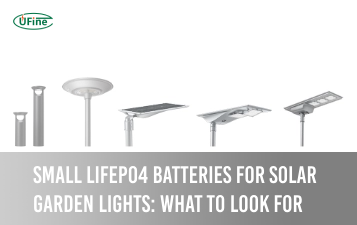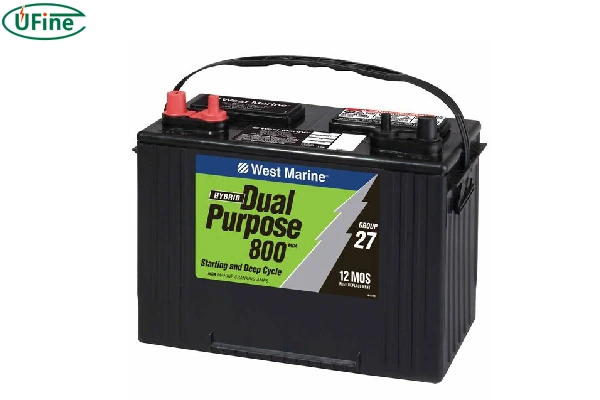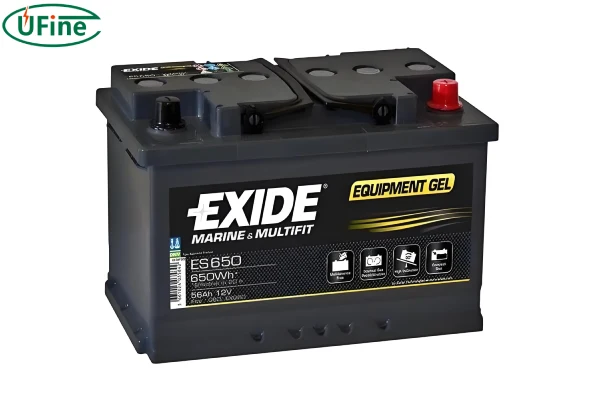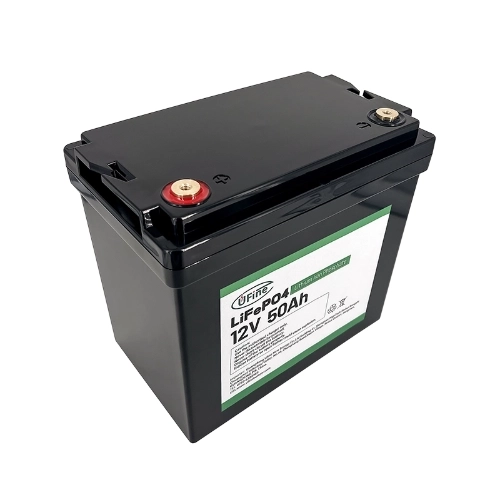When you’re out on the water, the last thing you want to worry about is whether your boat battery will perform as expected. A reliable boat battery is essential for starting your engine, powering electronics, and ensuring safety while you enjoy your time on the water. However, with various types of boat batteries available, choosing the best one for your needs can be challenging. This article will delve deeply into the different types of boat batteries, essential factors to consider when purchasing one, the growing popularity of lithium batteries, how to choose an appropriate charger, and the importance of a battery box.
Part 1. Boat battery types
Understanding the various types of boat batteries is the first step in making an informed decision. Each type has its characteristics, advantages, and drawbacks. Here’s a closer look at the most common boat battery types:
a. Lead-Acid Batteries
Flooded Lead-Acid Batteries: This is the most traditional battery type used in boats. They contain liquid electrolyte solutions that require regular maintenance.
- Characteristics:
- Affordable and widely available.
- Require topping off with distilled water to maintain electrolyte levels.
- Can be heavy and may leak if not handled properly.
AGM (Absorbed Glass Mat) Batteries: AGM batteries are a more advanced version of flooded batteries. They use a glass mat to absorb the electrolyte, making them spill-proof.
- Characteristics:
- Maintenance-free, which means no need to check water levels.
- More durable and resistant to vibrations, making them ideal for rough conditions.
- Typically last longer than flooded batteries, but they come at a higher price.
b. Gel Batteries
Gel batteries use a silica gel to hold the electrolyte in place, making them another maintenance-free option.
- Characteristics:
- Spill-proof and resistant to overcharging.
- Perform well in extreme temperatures, which is beneficial for varying weather conditions.
- Generally more expensive than flooded lead-acid batteries.
c. Lithium Batteries
Lithium batteries are becoming increasingly popular in boating due to their numerous advantages.
- Characteristics:
- Extremely lightweight, which can improve overall boat performance and fuel efficiency.
- Have a longer lifespan, often exceeding 10 years, meaning fewer replacements.
- Charge significantly faster than traditional batteries, reducing downtime.
- Offer higher usable power and better efficiency compared to lead-acid options.
- However, they are typically more expensive upfront.
Part 2. Buying a boat battery: key consideration parameters
When selecting a boat battery, several key parameters should be considered to ensure you make the right choice:
a. Capacity (Ah)
Battery capacity is measured in ampere-hours (Ah) and indicates how much energy the battery can store. A higher capacity means the battery can power your boat for a longer period. Assess your energy needs based on the equipment you plan to use, such as lights, fish finders, or radios.
b. Cold Cranking Amps (CCA)
CCA measures the battery’s ability to start an engine in cold temperatures. This is particularly important if you operate your boat in colder climates. A higher CCA rating is essential for reliable performance in frigid conditions. Ideally, aim for a battery with at least 200 to 300 CCA for optimal starting power.
c. Size and Weight
The size of the battery must fit into your boat’s designated battery compartment. A battery that’s too large won’t fit, and one that’s too small may move around, leading to damage. Additionally, consider the weight of the battery; lighter batteries can improve performance and fuel efficiency.
d. Maintenance Requirements
Think about how much maintenance you’re willing to undertake. Flooded lead-acid batteries require regular checks and topping off with distilled water, whereas AGM and lithium batteries are maintenance-free. If you prefer convenience, opt for a maintenance-free option.
e. Voltage
Most boats run on 12V batteries, but it’s essential to confirm your boat’s specific voltage requirements. Using a battery with the incorrect voltage can lead to electrical system damage or failure.
f. Durability
Durability is crucial for boat batteries, especially when subjected to vibrations and environmental stress. Look for batteries designed to withstand the rigors of marine environments. AGM and lithium batteries often offer better durability than traditional lead-acid options.
g. Price
Your budget will ultimately influence your decision. While lead-acid batteries are the most affordable, they may not offer the same longevity or performance as more expensive options like AGM or lithium batteries. Assess the long-term costs, including replacement frequency, when making your choice.
Part 3. Lithium boat batteries
Lithium batteries are rapidly gaining popularity in the boating community, and for good reason. Here are several reasons why they stand out:
-
Lightweight Design: Lithium batteries are significantly lighter than lead-acid batteries. This weight reduction can lead to improved boat performance and fuel efficiency, particularly important for long trips or high-speed applications.
-
Long Lifespan: One of the most appealing aspects of lithium batteries is their lifespan. They can last up to 10 years or more, which translates to fewer replacements and less hassle over time. This durability makes them a wise investment for serious boaters.
-
Fast Charging: Lithium batteries can be charged much faster than their lead-acid counterparts. This feature is particularly advantageous if you’re on a tight schedule or if you plan to use multiple electronic devices.
-
Higher Usable Power: Lithium batteries provide a higher percentage of their stored energy than lead-acid batteries, meaning you can run more equipment without worrying about draining the battery. This is particularly useful for boats that rely on numerous electrical devices.
-
Low Self-Discharge Rate: Unlike lead-acid batteries, lithium batteries maintain their charge for extended periods. This characteristic is ideal for boaters who use their vessels infrequently, as they won’t have to worry about a dead battery when they’re ready to go.
Part 4. How to choose a suitable boat battery charger?
Choosing the right charger for your boat battery is just as important as selecting the battery itself. Here are several factors to consider when selecting a charger:
a. Charger Type
There are various charger types, but smart chargers are often the best choice. These chargers automatically adjust their charging rate based on the battery’s needs, preventing overcharging and extending the battery’s lifespan.
b. Voltage Compatibility
Ensure the charger is compatible with your battery’s voltage. Most boats use 12V batteries, but verifying this detail can prevent potential issues.
c. Amperage
The charger’s output, measured in amps, should be suitable for your battery size. Higher amp outputs charge batteries faster, but they can be damaging if too high for smaller batteries. A common rule of thumb is to choose a charger that delivers 10% of the battery’s Ah capacity.
d. Features
Look for chargers with multiple charging stages, maintenance modes, and safety features like automatic shut-off to prevent overcharging. These features can enhance the efficiency and safety of the charging process.
e. Portability
If you frequently move your charger or require a portable solution for charging while on the go, consider a lightweight and compact model that can be easily transported.
Part 5. Do you need a boat battery box?
While a battery box may seem like an optional accessory, it plays several critical roles:
a. Safety
A battery box helps contain any spills or leaks, protecting both your boat and the environment. This is particularly important for lead-acid batteries, which can leak harmful acids.
b. Protection
Battery boxes provide a protective barrier against physical damage from bumps, vibrations, or harsh weather conditions. This added layer of protection can extend the lifespan of your battery.
c. Ventilation
Many battery boxes are designed with ventilation features to prevent the buildup of gases, especially when charging batteries. Proper ventilation is crucial for safety, as it reduces the risk of gas buildup that could lead to explosions.
d. Secure Storage
A battery box keeps the battery securely in place, preventing movement during transit. This is essential for maintaining the integrity of the battery connections and ensuring reliable performance.
Part 6. Final words
Choosing the right boat battery is essential for ensuring a safe and enjoyable boating experience. By understanding the different types of batteries, key parameters to consider when buying, and the advantages of lithium batteries, you can make an informed decision. Additionally, selecting the appropriate charger and considering the use of a battery box will further enhance your battery’s performance and longevity. Whether you prioritize weight, maintenance, or efficiency, the right battery will ensure that you can enjoy your time on the water without any worries. So, take the time to evaluate your options and invest in a battery that meets your unique needs.
Related Tags:
More Articles

Small LiFePO4 Batteries for Solar Garden Lights: What to Look For
Learn why small LiFePO4 batteries are ideal for solar garden lights with tips on features, benefits, and how to choose the best one.
How to Choose the Right Small LiFePO4 Battery: Capacity, Dimensions, and Price
Learn how to choose the right small LiFePO4 battery by comparing capacity, size, and price for solar, RVs, scooters, and backup power needs.
Laptop Battery Replacement Guide – How to Choose Safely
Need a new laptop battery? Learn when to replace it, how to choose the right one, and where to buy safe replacements. Tips included!
What Is the Smallest 12V Battery? A Comparison of Mini Lithium Options
Discover the smallest 12V lithium batteries with top picks, comparisons, and tips for compact, powerful, and reliable energy solutions.
Current Draw and Discharge Rates: Optimizing Amped Lithium Battery Performance
Optimize Amped lithium battery life by managing current draw and discharge rates for better performance, faster charging, and longer lifespan.







